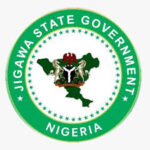Participants at a National Town hall meeting on the Water Resources Bill has said that the Bill was not only toxic but antithetical to attainment of human right to water by citizens.
There has been outcry in 2020 over a provision in the National Water Resources Bill and the being promoted by the Ministry of Water Resources and the National Assembly, that would privatize water administration in the country.
- Kwara: Residents of Dagbalodo dig sand with hands for water
- PODCAST: What Happens To The Various Taxes Nigerians Pay?
Executive Director of Corporate Accountability and Public Participation Africa (CAPPA), Akinbode Oluwafemi, speaking at the meeting on Monday in Abuja, said after a clause-by-clause analysis of the bill, it was discovered that booby traps were deliberately inserted in it to ensure that water is privatized in the country.
“As a movement representing the people, we had commissioned a thorough clause-by-clause analysis of the Bill and exposed the booby traps deliberately inserted to ensure it delivers privatization to Nigerians.
“We also exposed how the fundamentals of the Bill are antithetical to the attainment of the Human Right to Water. We had written to President Muhammadu Buhari on September 3, 2020, explaining our misgivings about the Bill and the need for a fresh process that will articulate what Nigerians truly want.
“The sustained pressure we mounted, along with the voices of the groups forced the National Assembly to step the Bill down for re-presentation,” Oluwafemi said.
He said that they expect the promoters of the Bill to come back to Nigerians to address the genuine concerns raised about the Bill.
He said, “We had thought they would embrace the democratic principles of transparency and inclusive in addressing the grave defaults of the Bill. But alas! We started reading in the media that the promoters of the faulty Bill will not back down in their quest to subject our common patrimony to the whims of a few who believe profit must come before universal access.
“To cap it all, during the commissioning of the Zobe Regional Water Supply Scheme in Dutsin-Ma, Katsina State on Thursday July 15, 2021, President Buhari urged the National Assembly to quickly pass the same flawed Bill.
“We want to assume the President was misinformed but we cannot continue dwelling in the realm of speculations. Therefore, we are here in the FCT, near the seat of power to reiterate our message and show that we will not back down in our demands.”
He said that Nigerians want a fresh National Water Bill that is community inspired and entail consultation with Nigerians across board from the initial stages through the entire process at the National Assembly.
In his keynote, on “Resource Management Dialogue within a Federal State Versus National Water Bill”, a renown sociologist, Prof. Sofiri Joab-Peterside highlighted what makes water governance challenging and the way forward.
“The attraction for participatory management of resources is that it entails a process by which the concerned organizations, groups, and individuals (often labelled stakeholders or actors) come together to discuss, agree upon, and support in practice a given course of action.
“Through that process stakeholders usually develop some co-management plans and complimentary agreements, and set up one or more organizations to address ongoing management decisions and take required actions.
“This implies that participatory management of natural resources is opened up to a plurality of social actors and becomes more experimental and opened. Importantly, participatory management can embrace various sorts of power-sharing agreements, from the most skewed (an agency in charge, with other stakeholders in only advisory roles) to the most egalitarian (a board of directors where all stakeholders are represented),” he said.
On their parts, the National President, Amalgamated Union of Public Corporations Civil Service Technical and Recreational Services Employees (AUPCTRE), Comrade Benjamin Anthony; Ms. Abiodun Badru of the Public Service International (PSI); Faith Nwadichi of Koyenum Imallah Foundation and Achike Chude of the Joint Action Front (JAF), urged the government to be sensitive to the plights of Nigerians and not add to their burdens by privatizing water.
Resolutions:
At the end of the meeting, participants resolved that the Resolution of the United Nations General Assembly (UNGA) on 28 July 2010 recognizing the human right to water and sanitation and the importance of clean drinking water and sanitation to the realization of all human rights makes it mandatory for the Nigerian government to remove every obstacle to citizens’ access.
The communique among others also urged Nigerian government at all levels to wean themselves of the privatization and PPP addiction which had failed across the globe and spurred re-municipalizations, especially in the last decade.
“The Federal Government discards the obnoxious National Water Bill and kick-start a fresh community-led process and consultation to birth a true and inclusive National Water Bill at the National Assembly.
“The Federal Government respects the genuine wishes of Nigerians, expressed through various public forums and public channels including media by jettisoning the toxic National Water Bill.
“The Federal Government and all state governments embrace tested and proven public sector solutions in addressing Nigeria’s water challenges. Some suggested solutions are the Public-Public-Partnership model and National Water Trust Fund.”

 Join Daily Trust WhatsApp Community For Quick Access To News and Happenings Around You.
Join Daily Trust WhatsApp Community For Quick Access To News and Happenings Around You.


